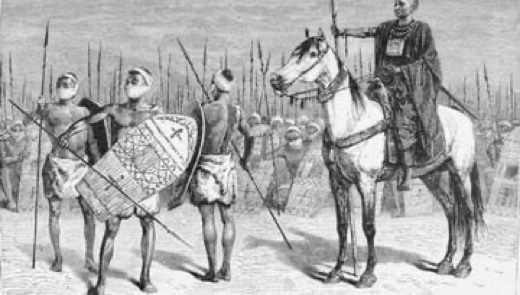The Fulani’s endeavor to conquer Osogbo, much like their success in Ilorin, ultimately failed.
After the systematic capture of Ilorin by the Fulanis, resulting in the subjugation of the old Oyo Empire in 1835/1636, they sought to expand their dominion further into the heart of Yoruba land.
In 1840, attention shifted towards the capture of Osogbo, a Yoruba town, with the Fulanis led by Ali, who served as the Hausa balogun of Ilorin, taking charge of the operation.
Recognizing the strength of the Ilorins, the king of Osogbo sought aid from Ibadan. Ibadan dispatched auxiliaries, initially under Obele alias Mobitan and Alade Abimpagun. Despite their efforts, the Ilorins continued to gain ground.
Ibadan, perceiving the growing threat, sent a larger force under Balogun Oderinlo to counter the Ilorin forces and Jammas. However, upon arrival, they found the situation more dire than anticipated, unable to face the Ilorin horses in open fields.

Sensing the need for a skilled warrior, Oderinlo called for Elepo, a brave Ibadan warrior previously rejected for his actions. Elepo was granted approval after receiving a cow from the Bashorun for worship and prayers.
The Ibadan forces, unable to confront the Ilorins in the open due to the advantage of the Ilorin horses, planned a dusk attack. At midnight, they launched a successful assault on the Ilorin camp, using the watchword “Elo ni owo odo?” to distinguish friend from foe.
The Ibadan army set the Ilorin camp ablaze, achieving victory. Notable captures included Jimba, the head slave of the Emir, and Chief Lateju. The Ibadans released the non-traitorous captives but executed the Yoruba-born traitors.
Following the Osogbo victory, Ibadan extended its influence by taking Ibokun, an Ijesa town allied with Ilorin. This success propelled Ibadan to become a formidable force in subsequent wars, including the historic alliance in the KIRIJI WAR with the Igbajos.

The KIRIJI WAR, the last war in Yoruba land, witnessed Ibadan’s resilience against Ekiti parapò warriors. Notable warriors included Fabunmi Okeemesi, Ogedengbe Agbogun gboro of the Ijesas, Apasikoto pasigegele of Igbajo, and Latoosa of Ibadan.
This prolonged native war, the longest in Africa, marked the end of hostilities in Yoruba land. Since then, the Yoruba people have forged strong bonds, sustaining peace among themselves.

